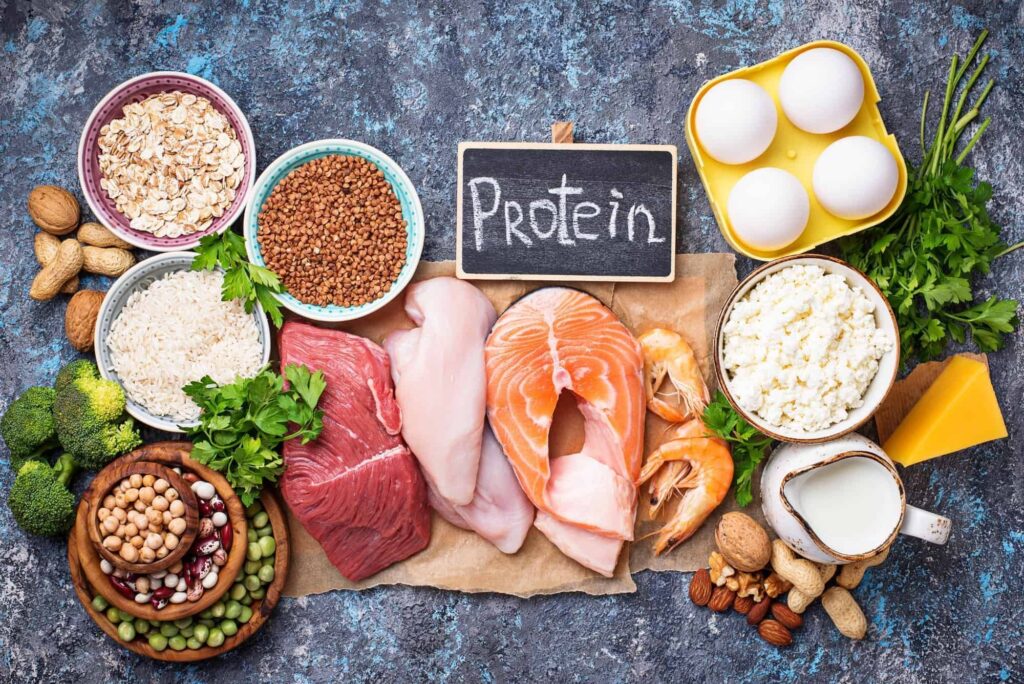
Protein, the mighty macronutrient, frequently finds itself at the core of countless health and fitness discussions. From dedicated gym-goers to individuals simply aiming for a healthier lifestyle, nearly everyone holds an opinion on how much protein is needed, its optimal form, and the best timing for consumption. This intense focus, however, has unfortunately given rise to a jumble of myths and misconceptions, often leading to confusion and less-than-optimal dietary choices.
As senior media editors committed to providing evidence-based, clear, and actionable health information, we recognize the critical importance of sifting through this constant stream of noise. Our mission is to empower you with accurate, scientifically supported knowledge, enabling you to make truly informed decisions about your protein intake. We are here to serve as your reliable guide, aiming to set the record straight on some of the most persistent protein myths that experienced trainers and health professionals wish you would stop overdoing.
Navigating the complex world of nutrition can feel overwhelming, especially with conflicting advice from various sources. But when it comes to protein, understanding the science behind its diverse functions is key to unlocking its true potential for nourishing and strengthening your body. Let’s delve into these common protein intake myths, armed with insights from leading experts and robust scientific research, ensuring you’re fueling your body wisely and effectively.
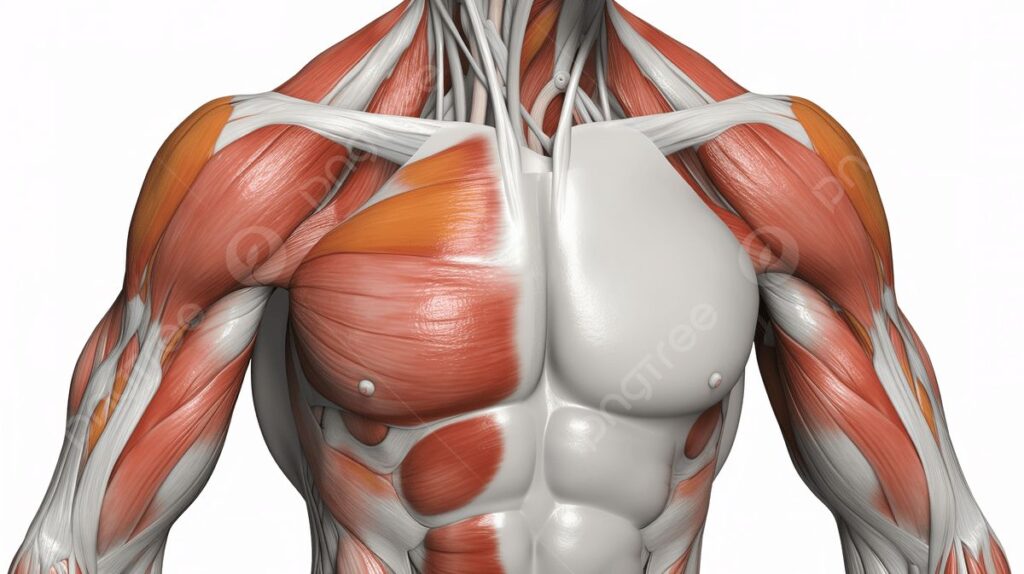
1. **Myth: Protein’s main role is *only* in muscle development.**It’s a common misconception to believe protein’s primary function is solely about building muscle and achieving a toned physique. This narrow view, often amplified by fitness culture, significantly undervalues protein’s multifaceted importance to overall human health and biological function. While protein is undeniably critical for muscle, its responsibilities extend far beyond the gym.
As an essential nutrient composed of amino acids, protein is a vital constituent of many critical bodily structures, including bones, joints, tendons, ligaments, and even hair. Beyond structural components, protein is integral to producing antibodies, hormones, enzymes, and both LDL and HDL cholesterol. This extensive involvement demonstrates protein’s indispensable role in nearly every physiological process within your body.
Furthermore, protein plays a crucial part in maintaining a robust immune system, regulating blood glucose levels for stable energy, and profoundly influences body composition. Recognizing this broader spectrum of protein’s functions helps us appreciate its essential nature for daily bodily activities like digestion, blood clotting, muscle contraction, satiety, and chemical signaling between cells, tissues, and organs, highlighting its foundational role in sustaining life itself.
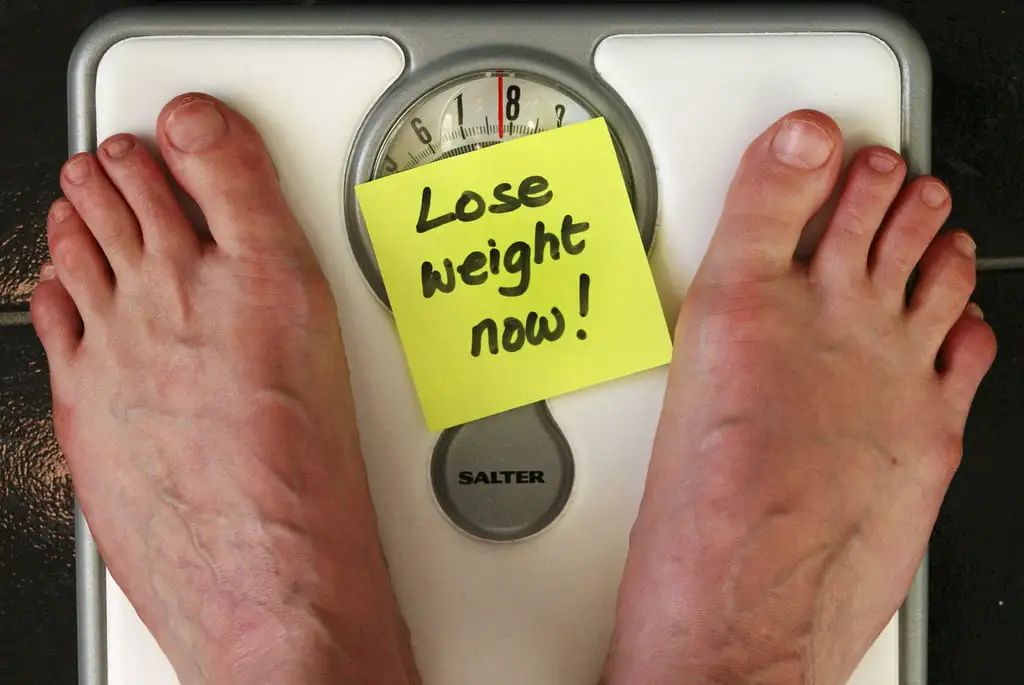
2. **Myth: Cutting way back on protein is a good way to lose weight.**For those starting a weight loss journey, it might seem logical to cut calories aggressively, sometimes targeting protein. However, drastically reducing protein intake can be counterproductive and even detrimental to your weight loss efforts and overall health. This essential nutrient offers unique benefits crucial for sustainable weight management.
Adequate protein consumption actually facilitates weight loss by promoting satiety and boosting metabolism. Protein’s powerful ability to keep you feeling full longer means you’re less likely to overeat or snack frequently, naturally reducing overall calorie intake without feeling deprived. If weight is lost due to severe protein restriction, there’s a significant risk that the loss is primarily valuable muscle mass rather than undesirable body fat, which is not conducive to healthy body composition.
Beyond impacting weight, insufficient protein can lead to unwelcome side effects such as pervasive fatigue, general weakness, and leg swelling (edema). A suppressed immune system is also a potential consequence, making you more susceptible to frequent illnesses. Losing weight is challenging enough; adding these health problems only exacerbates the difficulty. This underscores the importance of maintaining adequate protein for effective weight loss and preserving overall health and vitality.
Read more about: Debunked: 14 Critical Protein & Muscle Building Myths That Experts Say Are Holding You Back
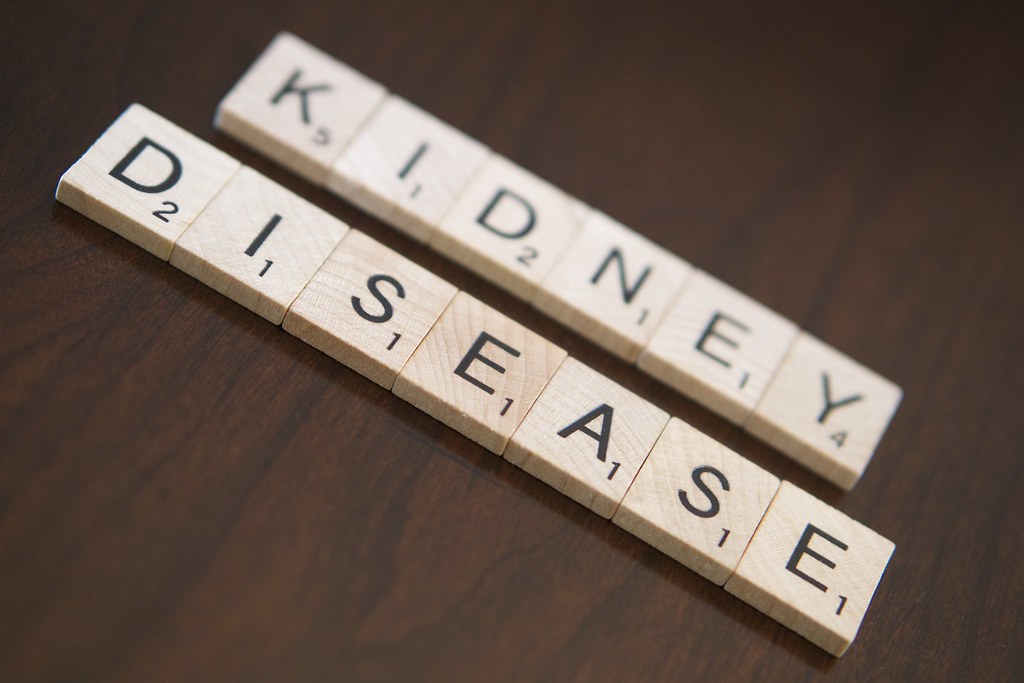
3. **Myth: Eating too much protein causes kidney disease.**This myth is one of the most persistent and concerning misconceptions about protein, often causing healthy individuals to unnecessarily restrict their intake. The fear that a high-protein diet will inevitably lead to kidney damage is largely unfounded, particularly for those without pre-existing kidney conditions. It’s crucial to differentiate between healthy kidneys and compromised ones.
Scientifically, consuming excess protein only harms the kidneys if you already have underlying kidney or liver disease. Healthy kidneys are remarkably efficient at expelling the extra nitrogen produced from protein breakdown, even with high protein intake from foods like steak, eggs, and beans. For individuals with healthy renal function, the kidneys can handle the metabolic load without undue strain, effectively filtering waste and excess nutrients as part of their normal operation.
In fact, numerous studies show no evidence that a higher protein diet *causes* or *leads to* renal disease or impairs kidney function in healthy individuals. Some research even indicates that white meat protein, dairy products, and plant proteins might be “renal protective,” potentially safeguarding kidney health. Therefore, if you’ve been avoiding extra protein due to kidney concerns, you might be missing out on significant health benefits.
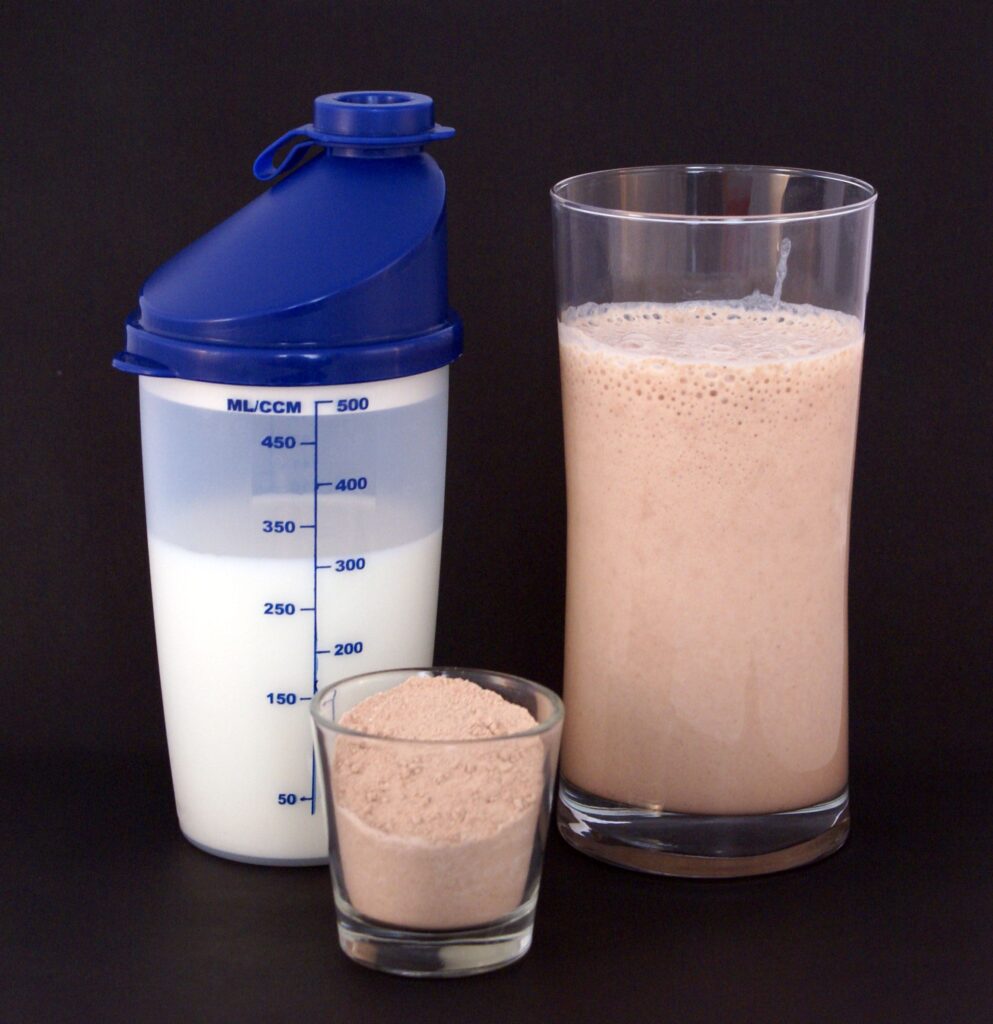
4. **Myth: It’s impossible to eat too much protein.**While protein’s importance for bodily functions is undeniable, the idea that you can’t have “too much of a good thing” with this macronutrient is another pervasive misconception. Just like any other essential dietary component, overconsumption of protein can lead to its own drawbacks, potentially impacting your caloric intake, food diversity, and even your budget. It’s about finding optimal balance, not unlimited intake.
If your plate is consistently overloaded with protein, such as excessive amounts of meat, it inevitably leaves less room for other crucial food groups. This includes complex carbohydrates from potatoes or rice, and, crucially, a wide variety of fruits and vegetables. A truly balanced diet emphasizes diversity, ensuring your body receives a broad spectrum of essential vitamins, minerals, fiber, and phytonutrients that could be overlooked in an highly protein-centric eating pattern.
Furthermore, if your primary protein choices are high in fat, especially saturated fat from fatty cuts or processed meats, you may inadvertently consume excess calories. This caloric surplus can directly contribute to weight gain. Additionally, relying heavily on premium animal proteins or specialized supplements can be expensive, driving up food costs. The smart approach is a judicious balance, ensuring protein choices are nutrient-rich, economically sustainable, and align with broader health goals.
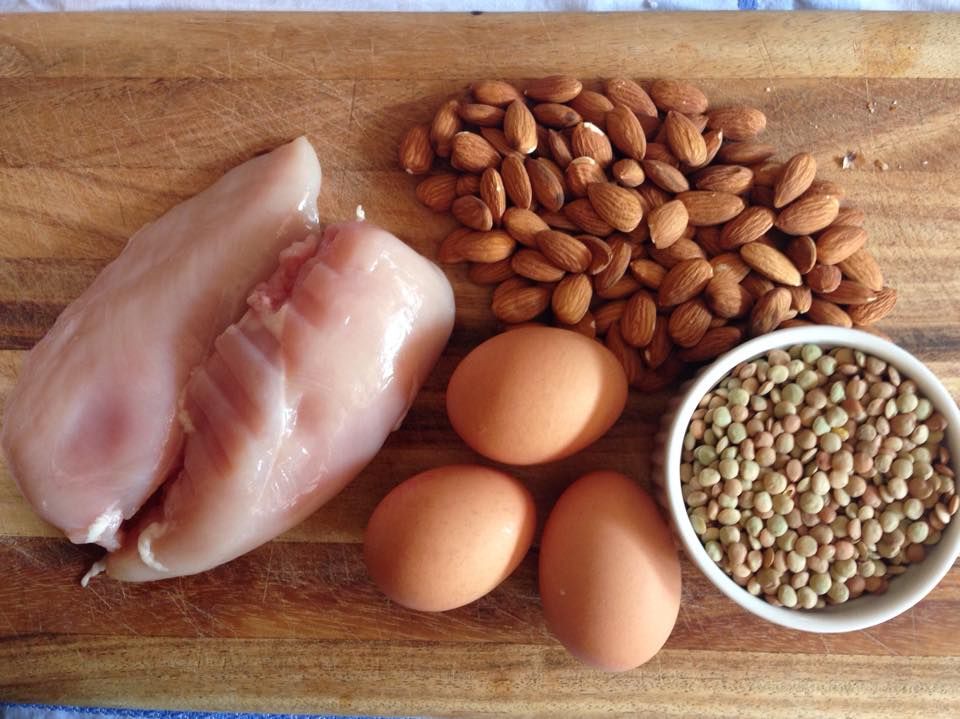
5. **Myth: You can’t get enough protein on a plant-based diet.**This myth frequently discourages individuals from exploring plant-based eating, stemming from the mistaken belief that a diet without animal products will lead to protein deficiency. However, this is far from the truth. While protein content and amino acid profiles differ between plant and animal foods, a well-planned, diverse plant-based diet can absolutely provide all the protein your body needs.
It’s a common misunderstanding that plant foods lack essential amino acids. In reality, all plants contain all nine essential amino acids. The nuance is that some plant sources might be proportionally lower in one or two specific amino acids. For instance, grains are typically lower in lysine, while beans are lower in methionine. This doesn’t necessitate rigid pairing of specific plant foods at the same meal to create a “complete” protein.
The key to adequate protein on a plant-based diet is consistent dietary diversity over a 24-hour period. By regularly consuming a variety of plant proteins—like lentils with rice, which complement each other’s amino acid profiles, or combining pita and hummus—you can easily ensure your body receives all necessary essential amino acids for crucial processes like muscle protein repair and synthesis. High-quality complete plant proteins such as quinoa, soybeans, amaranth, buckwheat, chia seeds, spirulina, and hemp seeds also offer a wealth of nutrients.
Read more about: Debunked: 14 Critical Protein & Muscle Building Myths That Experts Say Are Holding You Back

6. **Myth: Everyone should take a protein supplement.**The aggressive marketing of protein powders, bars, and shakes often leads to the belief that supplementation is a universal necessity for optimal health or fitness. However, for the vast majority of people, this is simply not the case. Most individuals already consume sufficient protein through their regular diet without even trying, making additional supplements largely redundant.
The Recommended Dietary Allowance (RDA) for protein is roughly 0.4 grams per pound of body weight. For a 150-pound person, this means about 60 grams daily. Meeting this is straightforward: a chicken breast and a container of Greek yogurt can easily achieve this. This demonstrates that for most healthy adults, a balanced diet is perfectly sufficient to meet protein requirements.
However, specific situations warrant supplementation. Individuals with genuinely increased protein needs due to disease, significant physical activity (e.g., athletes aiming for muscle mass), or those struggling to meet requirements from whole foods may benefit. Crucially, supplements are meant to *complement* your diet, not replace nutrient-rich meals. Be cautious, as some contain unwanted additives, fillers, or inaccurate label claims.
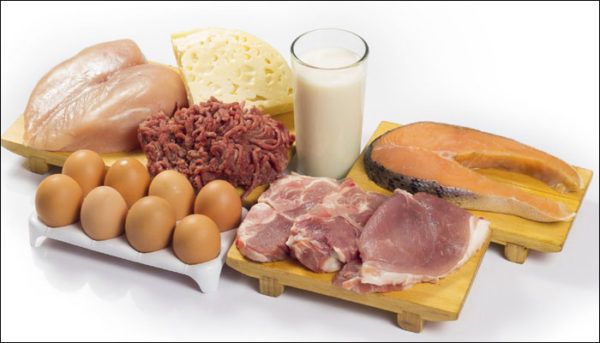
7. **Myth: It doesn’t matter when or how you consume protein, as long as you get enough daily.**While total daily protein intake is vital, the strategic timing and thoughtful distribution of that protein can also play a significant role, especially for specific goals like maximizing muscle protein synthesis or managing satiety. The idea that “protein is protein” regardless of when it’s eaten overlooks important physiological nuances.
Many people consume most protein at lunch and dinner, often leaving breakfast carb-heavy. To optimally stimulate muscle protein synthesis—crucial for repair, growth, and preventing muscle loss—it’s generally more beneficial to distribute protein evenly, aiming for about 20 to 30 grams per meal. This consistent intake provides a steady stream of amino acids, continuously stimulating muscle processes.
To achieve this, diversify protein sources across all meals. For breakfast, consider eggs, Greek yogurt, tofu, or turkey sausage. Lunch could include beans or lentils, veggie burgers, chicken, or cheese. Dinner offers lean beef, pork, chicken, turkey, beans, tofu, edamame, or fish. This strategic distribution, combined with carbohydrates and ample fruits and vegetables, optimizes your body’s protein utilization for better muscle health, recovery, and metabolic balance.
Navigating the landscape of protein intake can truly feel like a labyrinth, with conflicting advice at every turn. Yet, armed with scientific insights and expert consensus, we can confidently dismantle the remaining misconceptions that often hinder our best intentions for health and fitness. Let’s continue to shed light on these persistent protein myths, ensuring your dietary choices are built on a solid foundation of accurate information.

8. **Myth: Most people are getting too little protein.**It’s a remarkably widespread belief, often amplified by social media, that the average person is perpetually protein-deficient. Many individuals express a conviction that, despite knowing the Recommended Dietary Allowance (RDA) for protein, they personally require more than the average, leading them to consciously seek out additional protein sources. This perception, however, frequently overlooks how nutritional guidelines, like the RDA, are scientifically established.
Christopher Gardner, a professor of medicine at the Stanford University School of Medicine, highlights this common sentiment. He explains that experts set the RDA for protein at approximately 0.8 grams for every kilogram, or about 0.36 grams for every pound, of body weight. Crucially, these RDAs are intentionally set considerably above what the average person needs to ensure that a significant 97.5 percent of the population will meet or even exceed their protein requirements if they simply adhere to this guideline.
This means that aiming for protein intake above the RDA typically adds a safety buffer on top of an already generous safety buffer. In the U.S., only a select few groups of adults genuinely consume less than the RDA for protein. This primarily includes an estimated 19 percent of females and 13 percent of males aged 71 or older, often due to a natural decrease in appetite rather than a conscious restriction.
In fact, the average adult, regardless of age, consumes about a third more protein than the RDA, with a quarter of adults getting double the recommended amount. This isn’t usually because people are actively following a high-protein diet, but rather, as Bettina Mittendorfer, senior associate dean for research at the University of Missouri School of Medicine, notes, it’s often a consequence of general overconsumption of food.
Read more about: Debunked: 14 Critical Protein & Muscle Building Myths That Experts Say Are Holding You Back

9. **Myth: Your body can store extra protein.**When we think about our body’s storage capabilities, fat often comes to mind immediately—visible on our bellies or hips, and even in less obvious places. Similarly, carbohydrates are stored in limited quantities as glycogen in the liver and skeletal muscles, readily available for energy. However, the idea that protein can be tucked away for later use, much like fat or carbs, is a significant misunderstanding.
Christopher Gardner clarifies this distinction, explaining that unlike fat, which can be stored in a virtually limitless, inactive reservoir, protein behaves quite differently. “If you eat extra protein today, by tomorrow, it gets turned into carbs or fat,” he states unequivocally. “You can’t store protein for later.” This fundamental biological truth means that your body lacks a dedicated “protein bank” where excess amino acids can be deposited without immediate use.
While your muscles can indeed act as a protein reserve, this only occurs under conditions of protein deficiency, when the body is forced to break down its own muscle tissue for essential amino acids. In such scenarios, the body would “steal it from your arm or leg muscles—not your heart or the muscles around your lungs, because you need your heart to beat and your lungs to function,” Gardner explains. This process, however, comes at a cost, as muscle is far from an inert storage depot like belly fat; it’s an active tissue with vital functions.
The clearest indicator that our bodies aren’t designed to store extra protein is a simple observation: we don’t bulk up just by eating it. As Mittendorfer aptly puts it, “Otherwise we would bulk up just by eating it. And we don’t.” This underscores that simply consuming more protein without the stimulus of exercise will not lead to increased muscle mass, as the excess is metabolized and converted rather than stored as protein.
Read more about: Beyond the Buzz: 20 Everyday Foods That Won’t Boost Testosterone, But Deliver Real Health Advantages

10. **Myth: More protein means more muscle.**This is a foundational belief in fitness culture, yet it’s often oversimplified. While protein is undeniably essential for muscle repair, recovery, and growth, the relationship between protein intake and muscle gain isn’t linear. Your body requires protein to synthesize muscle, but only up to a very specific point. Simply consuming ever-increasing amounts of protein won’t automatically result in larger, stronger muscles.
According to Bettina Mittendorfer, you essentially “maximize muscle protein synthesis at about 25 to 30 grams of protein per meal.” If your intake falls below this threshold, increasing it can indeed contribute to muscle mass. However, if you are already consuming sufficient protein within this range, further increases are highly unlikely to boost either your muscle mass or your strength. There’s a biological ceiling to how much protein your body can utilize for muscle building at any given time.
Scientific studies further support this. For instance, the OPTIMen trial involved 48 men aged 65 or older who were randomly assigned to receive daily meals supplying either the Recommended Dietary Allowance (RDA) for protein or 60 percent more than the RDA. After six months, there was no observable difference in their lean body mass, muscle strength, or power. It’s important to note that some authors of this study had ties to the meat, egg, or dairy industries, which provides context to its findings.
Moreover, protein’s impact on muscle can vary with age. Older adults experience less muscle gain than younger adults when consuming the same amount of protein, a factor believed to contribute to the natural decline in muscle mass with aging. While extra protein combined with strength training may offer a small additional benefit for muscle growth in younger adults (typically aged 18 to 45, though most studies focus on 18 to 30), it generally doesn’t yield significant results in older populations, as younger individuals are still closer to their growth potential.
Ultimately, the most critical factor for muscle development, regardless of age, is exercise. Mittendorfer emphasizes, “The main effect on muscle comes from exercise training.” A study of 184 healthy individuals over 65 illustrated this vividly: only the groups engaged in exercise, not those simply taking protein supplements, showed improvements in knee strength, with heavy training leading to larger thigh muscles. This highlights that “gains in strength are bigger and occur sooner than gains in muscle size,” and it is strength, primarily driven by exercise, that is essential for daily function and health span.
Read more about: Debunked: 14 Critical Protein & Muscle Building Myths That Experts Say Are Holding You Back
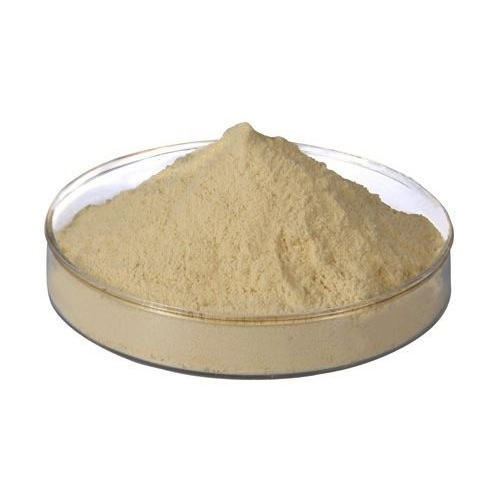
11. **Myth: Animal protein beats plant protein.**A common misconception is that animal protein is inherently superior to plant protein, often rooted in the belief that plant-based foods lack essential amino acids. This idea frequently deters people from exploring or maintaining plant-based diets, but it is a myth that scientific evidence readily debunks. The truth is far more nuanced and empowering for those choosing to diversify their protein sources.
As Christopher Gardner clarifies, “All plants have all nine essential amino acids.” The body can synthesize the other 11 non-essential amino acids it needs. While plant proteins may differ in their proportional amino acid profiles—for example, grains tend to be lower in lysine, and beans in methionine—these differences are generally insignificant for overall health, especially within a varied diet. Grains often contain more methionine, and beans more lysine, creating a natural complementary balance.
This means that you don’t need to meticulously pair specific plant foods at every meal to create a “complete” protein. Gardner assures that “if you weren’t paying attention, and you just ended up eating enough protein by the end of the day, you’d get enough of all the amino acids without even counting.” Once consumed, your body breaks down all protein—whether from an animal or a plant—into individual amino acids and then reassembles them as needed. The body doesn’t “remember whether the amino acid came from broccoli or a pig; No. It’s just a building block.”
Furthermore, scientific research indicates that animal protein does not necessarily lead to greater muscle or strength gains than plant protein. A study funded by the beef industry, involving 40 active adults aged 20 to 40, compared vegan and omnivore diets with different protein distribution patterns. After nine days, muscle biopsies showed no significant difference in protein synthesis between the groups. Similarly, a study of 34 active individuals aged 65 to 79 found that an omnivore diet resulted in no more muscle synthesis than a vegan diet.
These findings collectively underscore that “Most people can meet all their needs on a plant-based diet,” as Gardner states. The emphasis should be on a diverse and adequate overall protein intake, rather than obsessing over the superiority of one source over another. Incorporating a variety of legumes, grains, nuts, seeds, and soy products can easily provide all the essential amino acids your body requires for optimal function and muscle health.
Read more about: Debunked: 14 Critical Protein & Muscle Building Myths That Experts Say Are Holding You Back
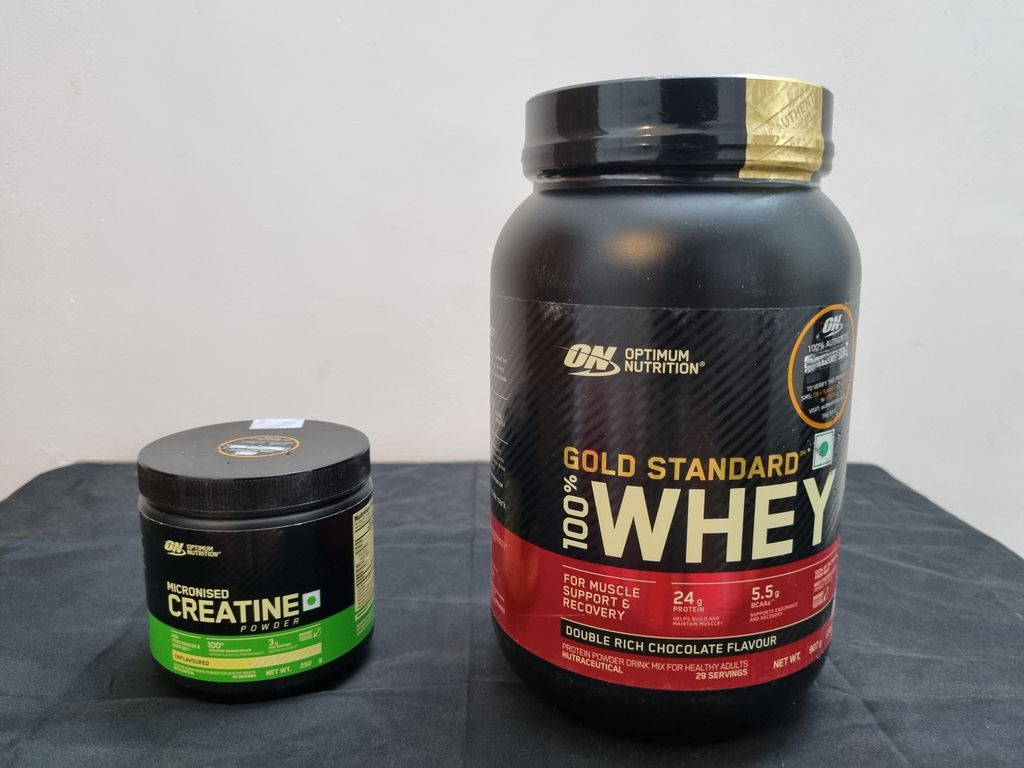
12. **Myth: Extra protein helps you eat less.**For many embarking on a weight management journey, the idea that consuming more protein will inherently lead to greater satiety and thus lower calorie intake is a very appealing one. While protein does play a role in fullness, the belief that “extra” protein consistently translates to eating significantly less is a myth that requires a closer look at the scientific evidence. The reality is more complex than a simple cause-and-effect relationship.
Christopher Gardner points out that there’s “no good evidence that protein makes foods more satiating” in the way many believe. He references a compelling study conducted by Barbara Rolls, a professor of nutrition at Penn State University. In this research, participants were given five different versions of lunch and dinner entrées, such as a chicken casserole and a shrimp stir-fry, which varied in their protein content—from 10 to 30 percent of total calories—but were made to look identical through fine chopping of ingredients.
Participants were instructed to eat until they felt full. Surprisingly, across all protein levels, they consumed roughly the same number of calories per day. If higher protein genuinely led to increased satiety in the manner often assumed, participants would have naturally eaten fewer calories on the days they consumed the meals with greater protein percentages. This study suggests that, beyond a certain baseline, merely increasing protein content doesn’t drastically alter overall calorie intake or subjective feelings of fullness.
When it comes to long-term weight loss, a frequently cited review, partially funded by the beef, pork, dairy, and egg industries, found that higher-protein diets led to only a modest one to two pounds more weight reduction compared to other diets. The POUNDS Lost trial, a larger and longer study, assigned 811 individuals with excess weight to one of four diets, all designed to cut 750 calories daily, but varying in their protein, fat, or carbohydrate emphasis. After two years, the average weight loss across all groups was nine pounds.
Crucially, those assigned to the higher-protein diets, which comprised 25 percent of calories from protein, lost no more weight than those on lower-protein diets, where protein accounted for 15 percent of calories. Interestingly, Gardner notes that by the two-year mark, both groups were consuming approximately 20 percent of their calories from protein, suggesting that people naturally gravitate towards a moderate protein intake over time, regardless of their initial dietary assignments.
Read more about: Debunked: 14 Critical Protein & Muscle Building Myths That Experts Say Are Holding You Back

13. **Myth: Protein causes weight gain.**This myth often arises from a misunderstanding of how the body processes excess calories, regardless of their source. The idea that protein, specifically, leads to unwanted weight gain is largely unfounded and can deter individuals from incorporating adequate amounts of this essential macronutrient into their diets. In reality, the picture is quite the opposite when protein is consumed wisely.
Studies consistently show that consuming a diet that provides slightly more protein than the recommended 0.8 grams per kilogram of body weight can actually promote weight loss. This intake also positively influences the body’s lean muscle mass and overall body composition. Furthermore, a higher protein diet has been observed to help prevent weight regain after initial weight loss, making it a valuable tool for long-term weight management.
It’s important to clarify that this doesn’t imply consuming huge, unrestricted amounts of protein. For example, a 165-pound person (75kg) increasing their protein intake from 0.8 to 1.0 gram per kilogram of body weight shifts their daily intake from 60 grams to 75 grams. This modest increase of 15 grams can easily be met by adding just two ounces of chicken or five ounces of Greek yogurt to their daily meals, demonstrating that significant benefits don’t require extreme dietary changes.
However, as with all dietary components, moderation is key. If you consume more calories than your body needs, regardless of whether those calories come from protein, carbohydrates, or fat, the excess will be stored as fat. Additionally, many high-protein foods, particularly fatty cuts of beef, pork, lamb, and processed meats, can also be high in saturated fat. Consuming these in excess can elevate blood lipid levels, thereby increasing the risk of heart disease and colon cancer.
Therefore, the strategy for avoiding weight gain and promoting health lies in choosing high-quality, lean protein sources. Opting for options like skinless poultry, low-fat dairy products, lean beef, fish, soy protein, beans, and nuts ensures you meet your body’s protein needs without an overload of saturated fat. Prioritizing nutrient-rich whole foods over heavily processed protein powders, shakes, and bars is always the smarter, healthier choice.

14. **Myth: Only active people need to worry about protein.**It’s a common assumption that protein is primarily the concern of athletes, bodybuilders, or those with highly active lifestyles. This myth leads many sedentary or moderately active individuals to undervalue protein’s importance, believing their needs are minimal. However, protein is a fundamental requirement for every single person, regardless of their activity level, performing essential functions that sustain life itself.
Protein is indispensable for a vast array of everyday bodily functions. These include maintaining the body’s pH balance, aiding digestion, facilitating blood clotting, enabling muscle contraction, promoting satiety, regulating body temperature (thermogenesis), controlling blood sugar, and ensuring chemical messaging between cells, tissues, and organs. These vital processes occur continuously, even when your body is completely at rest, underscoring protein’s constant demand.
As the major structural and functional component of every cell, protein is truly the building block of life. Of the approximately 50,000 different proteins found in the human body, a significant 65% reside within skeletal muscle. This highlights why adequate dietary protein is not just crucial for muscle and bone health, but for the overall integrity and function of all cells throughout the body.
The National Academy of Medicine recommends that all healthy adults consume a baseline of 0.8 grams of protein per kilogram of body weight. For an individual weighing 165 pounds (approximately 75 kg), this translates to about 60 grams of protein daily, even if they are sedentary. This recommendation serves as a minimum to prevent muscle breakdown and ensure basic bodily functions are supported.
Newer research suggests that many adults, including older individuals, may actually benefit from a slightly higher protein intake than the traditional RDA, potentially 15% to 50% more. Studies indicate that this moderately higher intake can help maintain and improve lean muscle mass and muscle strength, as well as enhance overall body composition, even in older adults. The clear takeaway is that adequate protein intake is crucial for optimal health, vitality, and cellular function for everyone, irrespective of their physical activity level.
Read more about: 14 Nutrition Myths That Are Totally Wrong (and What Science Says Instead)
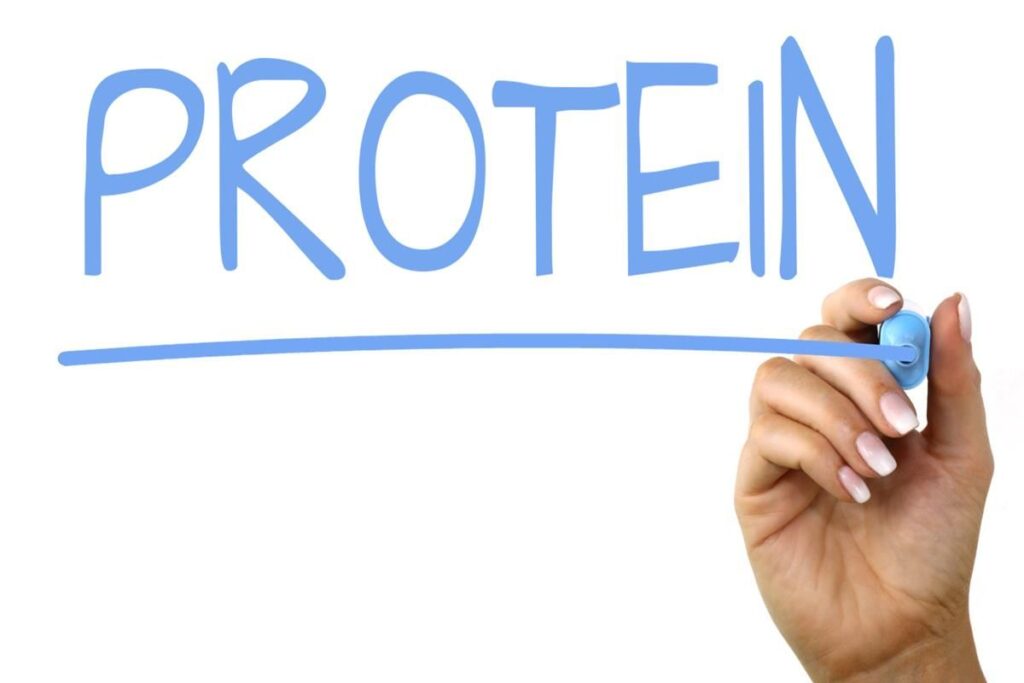
15. **Myth: More protein is bad for your bones.**The idea that high protein intake could be detrimental to bone health is another myth that often causes unnecessary concern and prompts individuals to limit a nutrient vital for skeletal integrity. However, scientific evidence strongly supports protein’s critical and multifaceted role in bone health throughout every stage of life, from childhood development to later adult years.
In children, adequate protein consumption is fundamental for ensuring proper bone development and achieving peak bone mass. As individuals age, particularly in their senior years, sufficient dietary protein becomes even more crucial. It actively helps maintain bone mineral density, a key factor in reducing the risk of bone loss, muscle loss (sarcopenia), muscle weakness, and overall frailty—all of which are significant risk factors for falls and fractures.
For adults in their middle years, protein plays an equally important role. Beyond its daily contributions to bodily functions, it is essential for the prevention of osteoporosis. The natural process of losing muscle mass begins as early as one’s 30s and 40s, and this decrease in muscle mass is directly linked to an increased risk of osteoporosis. Therefore, maintaining a daily dietary protein intake of no less than 61.2 grams is recommended for middle-aged and older adults to counteract this link.
While protein is beneficial, it’s not a case where “more is always better.” There is a recognized cap to its benefits, and exceeding extremely high levels can indeed have adverse effects. While the 0.8 grams of protein per kilogram of body weight serves as a minimum for basic bodily functions, consuming beyond 2.0 grams of protein per kilogram of body weight is not considered helpful and may even be detrimental to bone health. This ultra-high intake could potentially encourage increased calcium excretion, which might, in some cases, heighten the risk of osteoporosis, as some research has suggested it causes more calcium to be excreted in urine.
Therefore, the intelligent approach to bone health involves ensuring an adequate, rather than excessive, intake of protein, alongside a diverse diet rich in calcium-containing foods. In the vast majority of circumstances, maintaining appropriate protein levels will support and benefit your bones, rather than causing them harm. It’s about finding that sweet spot of sufficiency for optimal well-being.
As we’ve journeyed through these 15 persistent myths, it’s clear that the world of protein intake is less about rigid rules and more about informed, balanced choices. We hope this deep dive empowers you to move beyond the confusion and misinformation, making dietary decisions that truly nourish your body and support your health goals. Remember, knowledge is your most powerful tool in achieving optimal wellness, and now you’re better equipped than ever to make smart protein choices every day.



